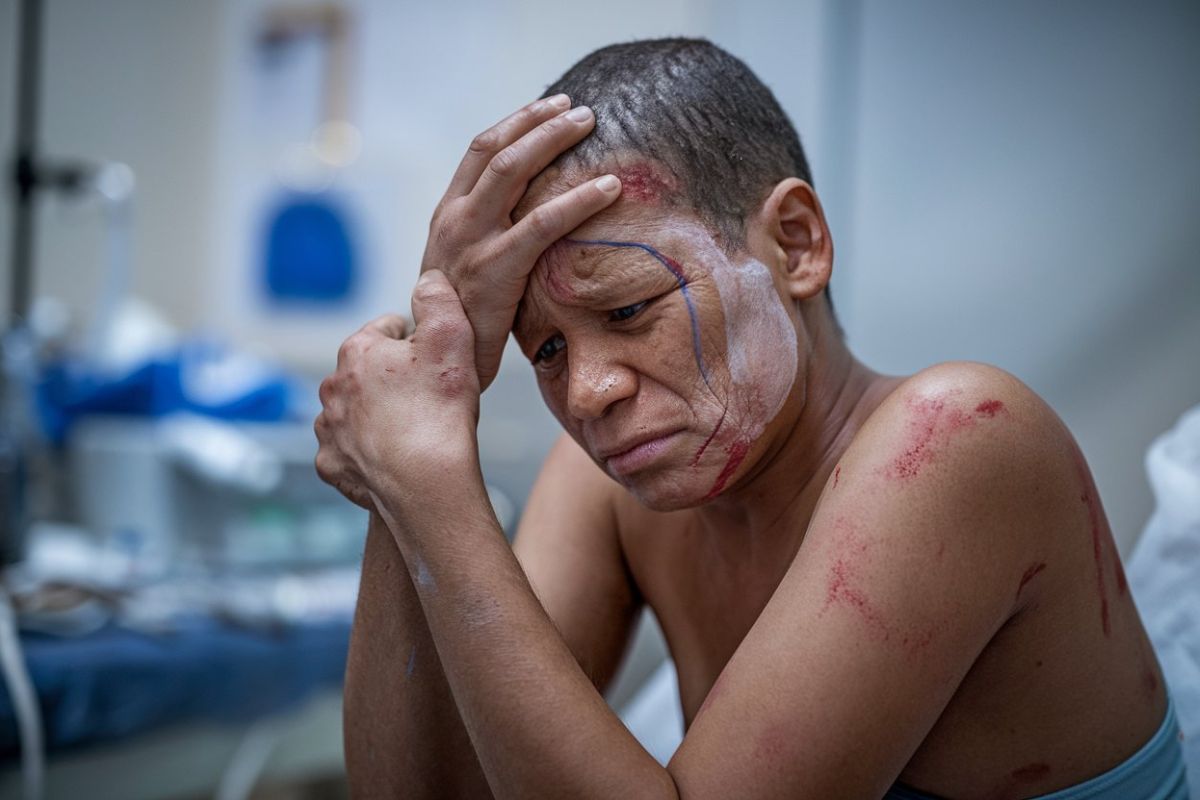
Post-Ebola Virus Syndrome (PEVS) is a condition affecting survivors of the Ebola virus. What is Post-Ebola Virus Syndrome? It’s a collection of symptoms that linger long after the initial infection has cleared. These symptoms can include joint pain, fatigue, vision problems, and even psychological issues. Survivors often face a tough road to recovery, dealing with both physical and mental health challenges. Understanding PEVS is crucial for providing proper care and support to those affected. This blog post will explore 25 key facts about PEVS, shedding light on its impact and the ongoing efforts to help survivors regain their health and well-being.
Key Takeaways:
- Post-Ebola Virus Syndrome (PEVS) can cause long-lasting symptoms like joint pain, eye problems, and mental health issues. Survivors may struggle with daily life, but the syndrome is not contagious.
- PEVS affects the body in various ways, leading to arthritis-like symptoms, digestive issues, and psychological challenges. Survivors may experience respiratory, cardiovascular, and hormonal imbalances, impacting their overall health.
What is Post-Ebola Virus Syndrome?
Post-Ebola Virus Syndrome (PEVS) affects survivors of the Ebola virus. It includes a range of symptoms that persist long after the initial infection has cleared. Understanding PEVS is crucial for providing proper care to survivors.
- PEVS can last for months or even years. Symptoms may linger long after the virus is no longer detectable in the body.
- Common symptoms include joint and muscle pain. Survivors often report chronic pain that can be debilitating.
- Eye problems are frequent. Many survivors experience uveitis, an inflammation of the eye that can lead to vision loss.
- Hearing loss is another symptom. Some survivors report a decrease in hearing ability, which can be partial or complete.
- Mental health issues are prevalent. Anxiety, depression, and PTSD are common among those who have recovered from Ebola.
- Fatigue is a major complaint. Survivors often feel extreme tiredness that doesn't go away with rest.
- Neurological issues can occur. These include memory loss, headaches, and difficulty concentrating.
- PEVS affects both adults and children. No age group is immune to the long-term effects of Ebola.
- The syndrome can impact daily life. Many survivors find it hard to return to their normal routines.
- PEVS is not contagious. Once the Ebola virus is cleared, the lingering symptoms cannot be passed to others.
How Does PEVS Affect the Body?
The effects of PEVS are wide-ranging and can impact multiple systems in the body. Here are some specific ways it manifests.
- It can cause arthritis-like symptoms. Joint pain and swelling are common, making movement difficult.
- Digestive issues are frequent. Survivors may experience nausea, vomiting, and abdominal pain.
- Skin problems can arise. Rashes and peeling skin are reported by some survivors.
- Respiratory issues may develop. Shortness of breath and chronic cough are among the symptoms.
- Cardiovascular health can be affected. Some survivors report heart palpitations and chest pain.
- Kidney function may decline. There are cases where survivors experience reduced kidney function.
- Liver issues can occur. Elevated liver enzymes have been noted in some survivors.
- Hormonal imbalances are possible. Changes in thyroid function and other hormonal issues have been observed.
- Immune system changes. Survivors may have a weakened immune system, making them more susceptible to other infections.
- Weight loss is common. Many survivors struggle to maintain a healthy weight due to ongoing symptoms.
What Are the Psychological Effects of PEVS?
The psychological toll of PEVS is significant and can be as debilitating as the physical symptoms. Here are some of the mental health challenges faced by survivors.
- Survivors often experience PTSD. The trauma of the illness and its aftermath can lead to post-traumatic stress disorder.
- Depression is widespread. The chronic nature of PEVS can lead to feelings of hopelessness and sadness.
- Anxiety levels are high. Many survivors worry about their health and the possibility of relapse.
- Social isolation is a problem. The stigma associated with Ebola can lead to survivors feeling isolated from their communities.
- Cognitive issues can arise. Problems with memory, attention, and problem-solving are common among survivors.
The Last Word on Post-Ebola Virus Syndrome
Post-Ebola Virus Syndrome (PEVS) leaves a lasting impact on survivors. Symptoms like chronic fatigue, joint pain, and vision problems can persist long after the initial infection. Understanding these lingering effects is crucial for providing proper care and support.
Survivors often face psychological challenges such as anxiety and depression, making mental health support essential. Research continues to uncover new aspects of PEVS, highlighting the need for ongoing medical attention and community support.
Raising awareness about PEVS helps reduce stigma and encourages survivors to seek help. By staying informed and compassionate, we can better support those affected by this condition.
Remember, knowledge is power. The more we learn about PEVS, the better equipped we are to help survivors lead healthier, more fulfilling lives. Keep spreading the word and supporting those in need.
Frequently Asked Questions
Was this page helpful?
Our commitment to delivering trustworthy and engaging content is at the heart of what we do. Each fact on our site is contributed by real users like you, bringing a wealth of diverse insights and information. To ensure the highest standards of accuracy and reliability, our dedicated editors meticulously review each submission. This process guarantees that the facts we share are not only fascinating but also credible. Trust in our commitment to quality and authenticity as you explore and learn with us.


